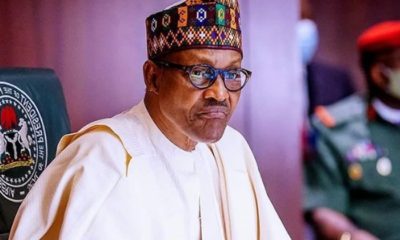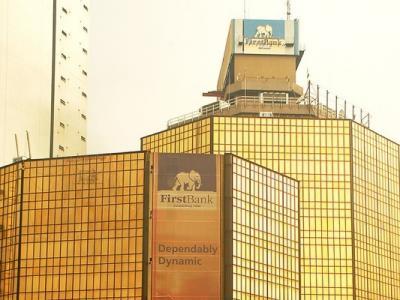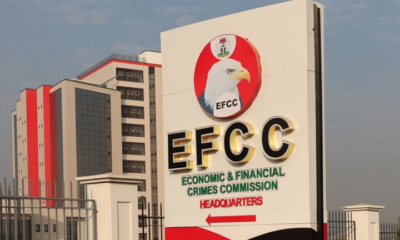Finance
Buhari orders EFCC to trace funds stolen under Jonathan

ABUJA-President Muhammadu Buhari has directed the Economic and Financial Crimes Commission and the Independent Corrupt Practices and other Related Offences Commission to compile documents on funds stolen under President Goodluck Jonathan.
The PUNCH reliably learnt on Sunday that the directive was part of efforts to know the exact amount stolen under the Jonathan administration with a view to tracing them to foreign countries.
 It was learnt that such documents would be needed by the international community, which had expressed readiness to assist Nigeria to recover the funds.
It was learnt that such documents would be needed by the international community, which had expressed readiness to assist Nigeria to recover the funds.
Buhari, had in a live programme, Good Morning Nigeria, on the Nigerian Television Authority, on July 27, said the international community was willing to assist Nigeria to recover stolen money.
He had said that his administration had started compiling necessary documents that would enable the international community to assist Nigeria recover the funds.
The President had stated, “We are trying to get these documents; we are getting cooperation from the international community. We are going very soon to make sure that those who perpetrated this crime against Nigeria will be faced with facts and be taken to our courts.”
It was gathered that, in a bid to carry out the presidential directive, the two agencies had started analysing petitions written against ministries, agencies and departments with a view to getting the amount stolen and those responsible for it.
An operative of one of the anti-graft agencies, who confided in one of our correspondents, said the managements of the anti-graft agencies had been engrossed in a sectorial analysis of petitions received from the various government agencies.
Investigation revealed that the anti-graft bodies were focusing attention on the top ministries, department and agencies which attracted massive budgetary allocations from the Federal Government under the previous administration.
The source said that the President’s directive was given shortly before his trip to the United States on July 20, 2015.
The directive was said to have triggered a flurry of activities among the anti-graft agencies.
It was further gathered that the Chairman of the EFCC, Mr. Ibrahim Larmorde, whose agency is the bigger of the two agencies, called for all the petitions and files against the various government bodies with a view to commencing holistic investigations in line with the government directive.
It was gathered that the files were allocated to the various units of the commission to commence the process of invitation, and interrogation designed to find out how much was missing and the process of prosecution.
It was further gathered that the ICPC on its part had been involved in a discreet investigation of civil servants believed to have acquired a lot of properties in Abuja with stolen funds.
Several political office holders in the previous administration had been quizzed for alleged corruption while many are said to be on the waiting list of the EFCC and the ICPC for interrogation.
The source said, “I think what is happening is not sudden; the President gave an instruction to the EFCC and the ICPC to ensure that they submit how much has been stolen in the various sectors of the economy.
“Since then, the Chairman of the EFCC called for all the files of the various agencies; they are quite many and they were being sifted.
“The ongoing investigation is meant to give the Presidency an idea of what was stolen within the country and in some cases outside.”
When our correspondent contacted the Resident Consultant, Media and Events of the ICPC, Mr. Folu Olamiti, he said he would not comment on the story.
PUNCH-
Business
Nigeria pays US$4.9 billion on petrol subsidy in 2024- NNPCL
It was however noted by Biztellers.com.ng, that although subsidy is back in effect, the main reason for that is the increasingly weak state of the Naira and the country’s extreme dependence on products importation. Also unlike the previous subsidy era, where several oil marketers were getting free subsidy refunds for unverified product importation, this subsidy era is witnessing only one importer, the NNPCL, which in effect is the sole receiver of government subsidies.
Yemie ADEOYE
INSPITE of the official position of the Nigerian government that the controversial petrol subsidy is gone for good as announced by the President on assumption of office, the state owned Nigerian National Petroleum Corporation Limited, NNPCL has disclosed that petrol subsidy is still fully operational in Nigeria, although, under a different identity.
Umar Ajiya, Chief Financial Officer at the NNPCL, disclosed that it cost the company a staggering N7.8 trillion (US$4.9) to cover this price gap in the first seven months of 2024.
Rather than simply referring to these claims as subsidies, he stated that the company is merely managing the price difference in petrol imports on behalf of the federation, stressing that this should not be misconstrued as a return to subsidy payments.
![]() This revelation has reignited discussions on whether the NNPC is indirectly offering subsidies, a concept typically defined as selling a product below its cost price.
This revelation has reignited discussions on whether the NNPC is indirectly offering subsidies, a concept typically defined as selling a product below its cost price.
Documents reviewed by Biztellers.com.ng showed that the term “subsidy” was used extensively in official correspondence between the NNPCL and the presidency, particularly in reference to the “shortfall.”
Recall that President Bola Tinubu reportedly approved NNPC’s request to utilize the 2023 final dividends due to the federation to offset these costs.
However, during a media briefing on Monday about the company’s 2023 audited financial statements, Ajiya refuted claims that the NNPC is involved in any subsidy scheme.
Ajiya further disclosed that the Nigerian government owes the NNPC N7.8 trillion ($4.9 billion) in subsidy-related debts for the period from January to July 2024.
In furtherance of his clarification to the News Agency of Nigeria (NAN), Ajiya insisted that no subsidy payments have been made to any marketer in the last nine years, citing the NNPC’s role as the sole importer of petrol under supply contracts.
He said, “In the last eight to nine years, NNPC Ltd. has not paid anyone a dime as a subsidy; no kobo has been disbursed by NNPC Ltd. in the name of subsidy. No marketer has received any payment from us for subsidy.”
“What has been happening is that we have been importing PMS, which has been landing at a specific cost price, and the government tells us to sell it at half price. So the difference between the landing price and that half price is a shortfall.
“And the deal is between the Federation and NNPC Ltd., to reconcile, sometimes they give us money, so there is no money exchanging hands with any marketer in the name of subsidy.”
Ajiya remained silent on how much of the $4.9 billion could have been remitted to the federation account if the NNPC had not been covering the “shortfall.”
It was however noted by Biztellers.com.ng, that although subsidy is back in effect, the main reason for that is the increasingly weak state of the Naira and the country’s extreme dependence on products importation. Also unlike the previous subsidy era, where several oil marketers were getting free subsidy refunds for unverified product importation, this subsidy era is witnessing only one importer, the NNPCL, which in effect is the sole receiver of government subsidies.
Banking
CBN Denies Currency Devaluation

The Central Bank of Nigeria (CBN) has refuted claims of devaluing the.
Earlier reports suggested that the CBN had devalued the Naira, lowering its exchange rate from N631 to the dollar, compared to the previous day’s rate of N461.60 at the Importers and Exporters (I&E) window.
However, the Central Bank of Nigeria (CBN) released a statement on Thursday through its Acting Head of Corporate Communications, Dr. Isa Abdulmumin, categorizing the report as false information.
In the statement titled ‘CBN Has Not Devalued The Naira’, he said the attention of the apex bank was drawn to the news report by an Abuja based newspaper edition of June 1, 2023, titled “CB Devalues Naira To 630/51”.
However, the CBN stated categorically that the news report was replete with outright FALSEHOODS and destabilizing innuendos, ‘reflecting potentially willful ignorance of the said medium as to the workings of the Nigerian Foreign Exchange Market.’
“For the avoidance of doubt, the exchange rate at the Investors’ & Exporters (I&E) window traded this morning (June 1, 2023) at N465/USS1 and has been stable around this rate for a while.
“The public is hereby advised to ignore the news report by Daily Trust in its entirety, as it is speculative and calculated at causing panic in the market,” the CBN spokesman added.
He, therefore, advised media practitioners to verify their facts from the Central Bank of Nigeria before publishing in order not to misinform the public.
Banking
BREAKING: CBN Increases Interest Rate By 0.5%

The interest rate in Nigeria has been raised to 18.5 percent, up by 0.5 percent, from 18 percent where it was pegged in March 2023.
The Central Banks of Nigeria’s (CBN) Monetary Policy Committee (MPC) resolved to this effect at its third meeting of 2023 in Abuja, on Wednesday.
Governor, CBN, Godwin Emefiele, made the disclosure in the communiqué of the MPC’s meeting, thereafter.
While engaging the media at the end of the two-day meeting, Emefiele, said the committee voted to keep the asymmetric corridor at +100 and -700 basis points around the MPR.
In the view of the MPC, rising inflation rate is traceable to the high energy cost and challenges around the supply chain, among others, which lie outside the corridors of the CBN.
Emefiele said, “The current trend in price development would continue to be monitored by the bank with greater collaboration with fiscal authority to address the drivers of inflation.”
Biztellers reports that the CBN had effected six consecutive interest rate increases, which has seen the rate move from 11.5 percent in March 2022 to 18.5 percent in May 2023.



















